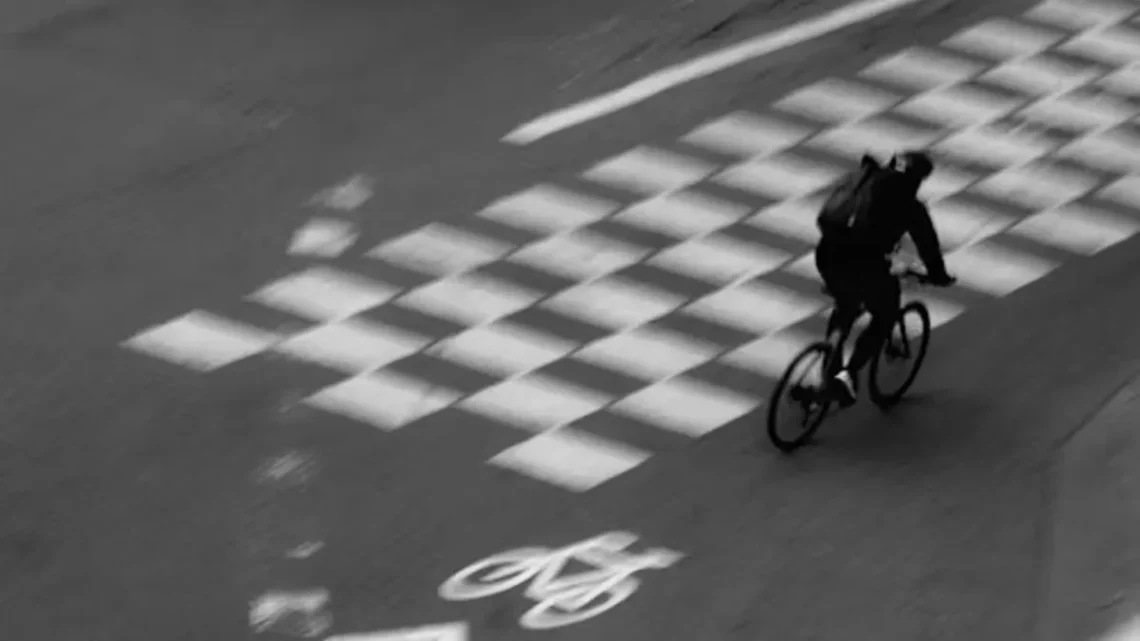When someone types “like a bicycle or a horse crossword” into a search bar, they’re looking for clarity — the precise word that connects both a bicycle and a horse. Within the first hundred words, the direct answer is “ridden.” Both a bicycle and a horse are things that can be ridden, and in crossword logic, that simple connection defines the clue. But solving a crossword isn’t just about finding the right word; it’s about understanding how clues are structured, how grammar guides you toward meaning, and how editors hide simplicity inside clever phrasing. This article explores the reasoning, the language, and the solving techniques behind this classic crossword clue.
The Essence of the Clue
Crossword clues are puzzles in miniature — tiny riddles written with linguistic precision. The clue “like a bicycle or a horse” appears deceptively casual, but its structure signals an adjective or participle describing a shared state. Both a horse and a bicycle are ridden. The participle “ridden” captures that condition perfectly. It’s succinct, grammatical, and satisfies the clue’s logic.
In the world of crossword construction, balance matters. A clue must be fair, meaning the answer should follow naturally once the solver sees through the disguise. This clue is fair because “ridden” matches both the literal description and common usage. The challenge lies not in the difficulty of the word but in the shift of perspective — seeing beyond what bicycles and horses are to what people do with them.
“A good crossword clue doesn’t trick you — it teaches you how to think,” said one veteran puzzle editor.
Why “Ridden” Works
Language drives crossword construction. The setter looks for words that bridge categories naturally. Here’s why “ridden” works so well – like a bicycle or a horse crossword:
- It’s an adjective derived from the past participle of ride.
- It applies logically to both subjects (bicycle and horse).
- It sounds natural in English phrasing (“a ridden horse,” “a ridden bicycle”).
- It fits neatly into typical crossword grids (six letters).
Many beginners hesitate with “ridden” because it feels slightly formal when applied to a bicycle. But in crossword logic, semantic accuracy takes precedence over everyday collocation. The test is whether the meaning holds, not whether it’s the most common phrase in speech.
The Editor’s Perspective
Crossword editors seek clues that balance fairness, brevity, and elegance. “Like a bicycle or a horse” succeeds on all three fronts. It’s a clean example of surface misdirection: the reader’s mind jumps to mechanical or anatomical similarities, not grammatical ones. Yet the underlying instruction is linguistic — find a word describing both items in a single shared property – like a bicycle or a horse crossword.
A good editor refines the clue’s rhythm so it reads smoothly. It’s conversational, not technical. It feels like something a person might say, even though it hides a logical trap.
“The best clues,” one crossword constructor said, “are the ones that look innocent and end with an aha moment.”
Table 1 — Understanding Similar Clue Structures
| Clue Style | Example | Expected Answer | Explanation |
|---|---|---|---|
| Like a bicycle or a horse | ridden | Shared property (both can be ridden) | Uses participle form of “ride” |
| What you do to a bicycle or a horse | ride | Direct action verb | Present tense, simple definition |
| Able to be ridden | mountable | Descriptive adjective | Longer form, emphasizes ability |
| Used for transport | mounted | Similar but formal | Often used with animals |
The Power of Grammar in Clues
Grammar is the skeleton of every crossword clue. To solve efficiently, you must identify the part of speech implied. “Like a bicycle or a horse” asks for something adjectival — describing likeness or condition. That immediately rules out verbs like ride or mount.
Testing substitution helps:
- “A bicycle is ridden” — makes sense.
- “A bicycle is ride” — ungrammatical.
- “A bicycle is mountable” — plausible, but longer.
By applying grammar tests, solvers can narrow down options logically.
“Grammar is the secret weapon of crossword solvers,” said a language columnist. “It exposes the logic beneath the play.”
How Crossword Solvers Think
Experienced solvers don’t chase meanings first — they decode structure. They look for part-of-speech clues, syllable patterns, and logical relationships. For clues like this one, the thought process runs almost subconsciously – like a bicycle or a horse crossword:
- Recognize “like” introduces comparison or condition.
- Determine the required form (adjective or participle).
- Identify a property shared by both objects.
- Test candidates in the sentence until one fits perfectly.
That reasoning compresses into seconds for seasoned players, but for beginners, writing these steps out helps.
Table 2 — Practical Solving Strategy
| Step | Approach | Example |
|---|---|---|
| Identify type | Descriptive clue | “Like a bicycle or a horse” |
| Find shared trait | Both can be ridden | Focus on the activity |
| Determine grammar | Adjectival or participle | “Ridden” fits perfectly |
| Test alternative forms | Mounted, rideable, pedaled | Eliminate by logic |
| Confirm with crossings | Use intersecting letters | Ensures grid accuracy |
Exploring Alternative Answers
Although “ridden” is the best answer, solvers sometimes propose alternatives like “mounted” or “rideable.” Each has partial validity:
- Mounted fits horses naturally, but rarely bicycles.
- Rideable is semantically precise, yet less elegant and sometimes exceeds grid length.
- Pedaled applies only to bicycles, making it incomplete.
Crossword fairness depends on inclusivity — the answer must cover both objects equally. That’s why “ridden” prevails.
Why Crosswords Use Simple Words Cleverly
Crosswords thrive on simplicity disguised as challenge. A short word like “ridden” can hold a day’s worth of confusion until suddenly the meaning clicks. The joy lies in realizing that complexity wasn’t necessary; observation was.
This is why editors adore minimalist clues. They reward lateral thinking. In a well-crafted puzzle, the answer seems impossible — until it seems obvious.
“The hardest puzzles use the simplest words,” an editor once quipped. “They remind us that clarity is the ultimate trick.”
Common Mistakes Solvers Make
Even experienced players fall for a few traps:
- Overcomplicating: Searching for obscure or technical words when the answer is plain.
- Ignoring syntax: Overlooking the grammatical role of the answer.
- Literal thinking: Focusing on physical attributes (wheels, legs) instead of linguistic function.
- Rushing crossings: Filling letters too quickly without testing meaning.
Patience, grammar awareness, and rereading aloud often resolve confusion faster than brute memorization.
The Learning Value of Crosswords
Crosswords are linguistic teachers disguised as games. They reinforce vocabulary, grammar, and associative thinking. The clue “like a bicycle or a horse” is a perfect teaching tool: it demonstrates how word relationships create insight.
Educators often use similar puzzles to train students in reasoning and language comprehension. By analyzing how one phrase can describe two objects, learners develop flexible thinking — a critical skill in writing, analysis, and problem-solving.
Cultural History of Such Clues
Crossword clues that use comparative phrasing date back decades. Editors rely on this format because it feels natural while hiding subtle grammar traps. The earliest examples used animal comparisons: “like a camel or a donkey,” “like a bird or a plane.” The tradition continues because it bridges humor and intellect.
Each generation of solvers experiences the same small victory: discovering the shared trait behind seemingly unrelated things. It’s a timeless puzzle formula that transcends cultural shifts.
Language and Logic Intertwined
At its core, solving this clue isn’t about vocabulary but about thinking relationally. What do two distinct nouns share that defines them in the same linguistic frame? “Ridden” becomes not just a word but a pattern of reasoning — understanding relationships between verbs and their objects.
That logic applies beyond puzzles. Writers, lawyers, and coders all rely on the same mental skill: identifying structure beneath surface detail. Crosswords, in that sense, are micro-exercises in clarity of thought.
Quotes from Crossword Enthusiasts
“Crosswords don’t test what you know — they test how you connect what you know.”
“The clue isn’t the enemy; it’s the conversation partner you must listen to carefully.”
“When I solved my first ‘like a bicycle or a horse’ clue, I realized language is built on shared actions.”
Such reflections show how crosswords transform from pastime to philosophy — every grid is a map of human reasoning.
The Satisfaction of the “Aha” Moment
Every crossword solver lives for that one instant — the click of realization. The moment you see “ridden” fill the blank, every wrong guess falls away, replaced by clarity and a small sense of triumph. That micro-moment of satisfaction fuels the culture of crosswords worldwide.
It’s not just about getting the answer right; it’s about understanding why it’s right. That difference separates guessing from mastery.
The Broader Lesson
The “like a bicycle or a horse” clue reminds us of language’s symmetry: two objects, unrelated in form, bound by a single human action. Words like “ridden” reveal how language compresses experience into compact meaning. The clue becomes not just a test but a tiny metaphor — a demonstration of how patterns unite things that seem separate.
This is why crosswords endure. They celebrate the mind’s ability to see order in ambiguity. Each clue, like this one, is a small triumph of perception over confusion.
FAQs on “Like a Bicycle or a Horse” Crossword Clue
1. What is the correct answer to the clue “like a bicycle or a horse”?
The most accurate and widely accepted answer is “ridden.” Both a bicycle and a horse are things that can be ridden, making it the logical fit grammatically and semantically.
2. Why is “ridden” considered a better answer than “mounted” or “rideable”?
“Mounted” fits horses but not bicycles naturally, while “rideable” is a longer, less common construction. “Ridden” perfectly balances brevity, fairness, and linguistic precision — the hallmarks of good crossword answers.
3. How can solvers identify such clue patterns quickly?
Look for comparative cues like “like,” “as,” or “similar to.” These often indicate an adjective or participle describing a shared property between nouns. Testing words in the sentence usually reveals the answer.
4. What type of clue is “like a bicycle or a horse”?
It’s a descriptive definition clue, where the solver must find an adjective or participle expressing a shared characteristic between two examples. The key lies in recognizing grammatical structure rather than guessing synonyms.
5. What lesson can crossword enthusiasts learn from this clue?
It teaches solvers to trust grammar and logic over guesswork. Simpler words like “ridden” often hide behind ordinary phrasing — reminding us that the best crossword clues reward clarity, not obscurity.





